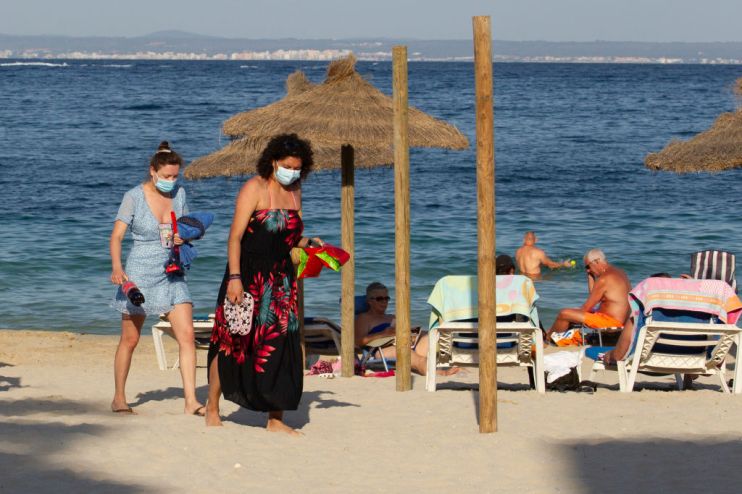Germany advises against travel to Spain’s virus-hit regions

Germany has advised holidaymakers to avoid travel to several regions in Spain that have seen a rise in the number of coronavirus cases.
“We currently advise against unnecessary tourist trips to the autonomous communities of Aragon, Catalonia and Navarre due to high infection numbers and local lockdowns,” the foreign ministry said today.
Many European countries are seeing a rise in infections again as they move out of strict lockdowns. Spain recorded its highest infection figure since May last Thursday with 2,615 cases, and has since had more than 2,000 cases a day.
As of yesterday, Spain has the highest number of cases in Europe after the UK, with 272,421 people infected according to the European Centre for Disease Prevention and Control. However, figures show that Spain has 35.1 cases per 100,000 compared to 14.7 in the UK.
Germany’s disease control agency today voiced “great concern” over rising numbers of cases in the country.
“We must prevent that the virus once again spreads rapidly and uncontrollably,” Lothar Wieler, head of the Robert Koch Institute said.
He said Germans bringing coronavirus back from their summer holidays was one reason for a surge in domestic cases, but also pointed to outbreaks in workplaces and open-air parties.
Over the weekend the UK government imposed a 14-day quarantine on those arriving from Spain, which it has now extended to include the Balearic and Canary Islands.
The decision came after ten Britons tested positive for the virus on their return from their country.
Spanish PM Pedro Sanchez today called the UK’s approach an “error” as it applied to the whole of Spain rather than just the affected regions.